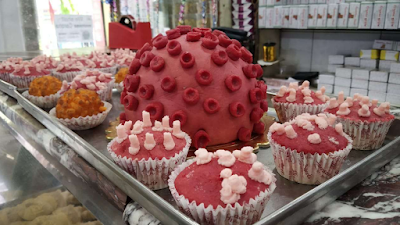Ahead of National Nutrition Month in September, here are
some health differences between jaggery and sugar to help you decide which
sweetener is best for your diet.
It wouldn't be wrong to say that sugar has earned the worst
reputation in wellness and nutrition, but it's not fair to label all sugars as
the same. The molasses content of jaggery makes it more nutritious since this
nutritious byproduct of the sugar making process is removed during the
manufacture of refined sugar.
However, jaggery is still sugar despite its slightly
different nutritional profile. Ahead of National Nutrition Month in September,
here are some health differences between jaggery and sugar to help you decide
which sweetener is best for your diet.
Calorie content
Refined white sugar contains only "empty calories"
or calories without vitamins, minerals, protein, fat, fiber, or other
beneficial compounds, while jaggery is rich in vitamins and minerals.
Effect on immunity
Jaggery is an excellent immunity booster, builds a shield
against diseases like coughs and colds. Coconut jaggery is also a great source
of antioxidants and miner like alsiron, folate, and magnesium, while palm
jaggery has the lowest glycemic index and is a proven remedy for coughs and
common cold because it is packed with nutrients like iron, folate, potassium
and calcium. On the other hand, refined sugar suppresses the immune system
which, if compromised, is more likely to cause disease and reduce the body's
ability to ward off disease.
High fructose corn syrup or HFCS 55 is a type of refined
sugar that contains 55% fructose and 42% glucose, while jaggery contains more
than 70% sucrose, less than 10% glucose and isolated fructose and 5% minerals.
Health effects
While refined sugars are linked to obesity, type 2 diabetes,
heart disease, depression, dementia, liver disease, and some types of cancer,
consuming jaggery results in improved body digestive health, anemia prevention,
liver detoxification and improved immune function.
 |
| harry register now to share your knowledge & view to would from our conference platform |
Therefore, going for jaggery is a healthier choice as it
will give you a few extra nutrients, but since it is still sugar at the end of
the day, it should only be used very sparingly, depending on your preferences
and your dietary goals.


